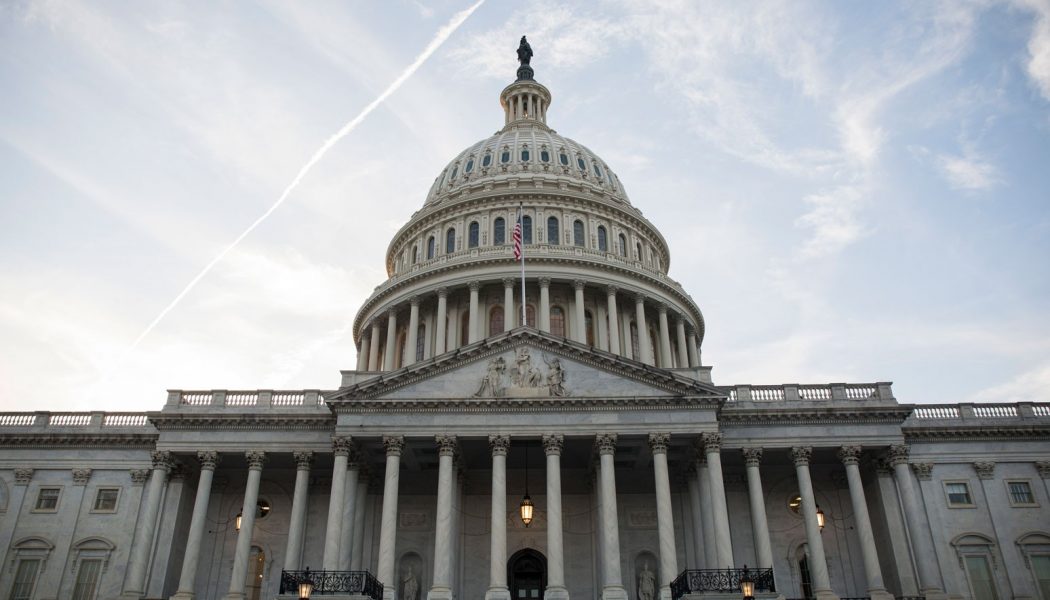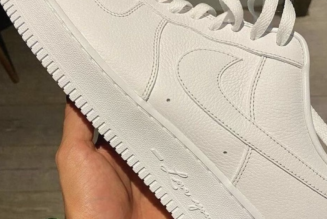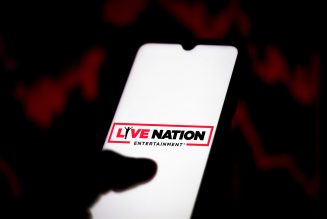
The letter points to a 2018 Government Accountability Office report, which concluded that Live Nation holds more than 80% of the U.S. venue ticket sales market. It goes on to add that the Department of Justice has found that the promoter has repeatedly violated the terms of the agreement over the course of the last 10 years by threatening venues and forcing the bundling of artists with ticketing services. In 2019, Live Nation reached a settlement with the DOJ’s antitrust division agreeing to extend the 2010 consent decree governing the merger of Ticketmaster and Live Nation to 2025 and clarifying rules regarding threats and retaliation against venues that don’t sign with the ticketing giant.
“We believe the prior administration’s decision to extend the consent decree in 2019 to 2025 was insufficient to protect consumers,” Monday’s letter reads. “In its decision, DOJ did not demonstrate why extending the consent decree with only minor modifications would prevent [Live Nation] from continuing anticompetitive conduct. Rather than double-down on a failed approach, DOJ must now take steps needed to restore competition to the ticketing marketplace.”
Live Nation has declined to comment on the letter from the representatives.
The letter comes at a time when the general attitude towards entrenched economic power is shifting away from conglomerates like Live Nation and Biden has indicated he may be taking a harder line on against monopolistic behavior. In March, Biden announced his intent to nominate “hipster antitrust” champion Lina Khan for commissioner of the Federal Trade Commission, and appointed big tech critic Tim Wu to his National Economic Council to focus on technology and competition on the National Economic Council. Sen. Amy Klobuchar (D-MN), a vocal Live Nation critic, is also releasing a book later this month examining antitrust in America, called Antitrust: Taking On Monopoly Power From the Gilded Age to the Digital Age.
A major concern for the members of Congress is Live Nation’s growing control over the secondary market. The letter highlights the company’s use of its SafeTix technology that prohibits the release and transfer of tickets outside of Ticketmaster’s platform, effectively shutting out other secondary ticketing platforms. SafeTix gives Ticketmaster a major advantage because it grants the company control over the entire lifespan of the ticket, from sale to show night, with a digital ledger showing every time the ticket is sold or transferred, along with the identity of everyone participating in the transaction. SafeTix’s non-transferability option was used for the first time in 2019 at a Black Keys concert at the Wiltern in Los Angeles that saw hundreds of fans who purchased resale tickets via StubHub or Vivid Seats shut out of the show. Ticketmaster’s SafeTix technology has since been used for various other events including NFL games and Madonna’s Madame X tour without major issues.
The SafeTix technology is geared toward preventing fraud by creating unique barcodes that refresh and prevent resellers from selling multiple consumers the same ticket. It is also up not up to Ticketmaster when the non-transferable feature is used. The ticketer provides that option for artists and promoters to implement as they deem appropriate.
The Congress members go on to state that they believes Live Nation will use technology like SafeTix to make entry safer during and after the pandemic, while also compelling concertgoers to register an account with Ticketmaster. The first part could be a good thing, but comes at a cost. “While local governments should work with local venues to ensure common sense public health protections for fans, such as mask-wearing and social distancing,” the letter states, “we cannot allow Ticketmaster to leverage the pandemic to choke off competition by eliminating ticket transfer.”
Ticketmaster president Mark Yovich says Ticketmaster’s technology like SafeTix and Presence could be used to help venues and artists return to concerts with the “ability to explore integrations to allow contact tracing where necessary” and enable social distancing with an algorithm capable of measuring. It also gives artists more control over their tickets instead of yielding them to the secondary market.
As touring returns, the demand for tickets is up as seen with Bad Bunny’s El Último Tour del Mundo tour which sold out in record time. According to Billboard reporting, the tour has also seen the highest ticket market up in history with secondary sites selling tickets for more than 10-times their face value.
Read the full letter here:
Dear Attorney General Garland and Acting Chairwoman Slaughter:
We write in support of strong antitrust enforcement by the Biden Administration, including the live event ticket sales marketplace. The evidence is overwhelming that the 2010 merger between the world’s largest concert promoter, Live Nation, and the biggest ticket provider, Ticketmaster, has strangled competition in live entertainment ticketing and harmed consumers and must be revisited.
According to the Government Accountability Office’s (GAO) 2018 report, Live Nation Entertainment (LNE), holds more than 80 percent of the venue ticket sales market. The Federal Trade Commission (FTC) held an important workshop in 2019 that examined the ticketing industry and heard concerns on LNE’s anticompetitive behavior from actors throughout the industry. These important federal reviews, combined with troubling media reports and state sponsored reports, show that more can be done to investigate potentially unfair, deceptive, and anticompetitive practices in the ticket industry.
Since the merger, we have witnessed how pitfalls of the Department of Justice’s (DOJ) consent decree has failed to protect competition and consumers. The DOJ itself has found that LNE has repeatedly violated the terms of the agreement over the course of the last 10 years by threatening venues and forcing the bundling of artists with ticketing services. These practices have enabled Ticketmaster to maintain its control of more than 80 percent of the primary ticketing sale market and to grow its position in the secondary market. We believe the prior administration’s decision to extend the consent decree in 2019 to 2025 was insufficient to protect consumers. In its decision, DOJ did not demonstrate why extending the consent decree with only minor modifications would prevent LNE from continuing anticompetitive conduct. Rather than double-down on a failed approach, DOJ must now take steps needed to restore competition to the ticketing marketplace.
Not satisfied with its near monopoly of the primary sale of tickets, LNE has tightened its grasp on the secondary market, making it one of the largest ticket resellers in the United States. The company is now leveraging its position in the primary channel to drive out competition in the resale market and allowing for potentially unfair and deceptive practices.
One recent example we are concerned about is the introduction of a smart phone ticketing product, known as “SafeTix,” which was purportedly created to fight fraud. However, LNE is using this program to ensure that tickets can only be resold or gifted within the Ticketmaster system. Ticketmaster has also used “SafeTix” to cancel resold tickets minutes before showtime. Media reports tell of patrons who purchased tickets on a competing resale platform being literally left out in the street while the show went on without them. If true, these reports may support claims of unfair and deceptive practices by LNE.
Throughout the coronavirus disease of 2019 (COVID-19) pandemic, LNE has rebranded its anticompetitive ways under the guise of protecting the public health. As reported in Billboard Magazine, “Ticket transfer technology used to restrict fans from reselling tickets to high demand shows will now be used to make ‘entry safer’ by requiring most person[s] entering a concert venue to register an account with Ticketmaster.”[1] While local governments should work with local venues to ensure common sense public health protections for fans, such as mask-wearing and social distancing, we cannot allow Ticketmaster to leverage the pandemic to choke off competition by eliminating ticket transfer.
Although, sadly, the pandemic continues to prevent a return to packed venues, hope is on the horizon that live events will begin to resume. Indeed, the governors of New York and New Jersey recently announced the easing of restrictions on live events in large venues. When live events return in earnest, it is imperative that consumers have access to a market that is transparent, fair, and competitive. We know that LNE is not sitting idle during this lull. Your agencies must guard against one company dictating the conditions of the return of live events and cannot permit LNE to mask its anticompetitive instincts under the guise of public health.
We strongly urge the DOJ and FTC to protect consumers future access to live events by immediately launching an investigation of LNE’s potentially unfair, deceptive, and anticompetitive practices.









